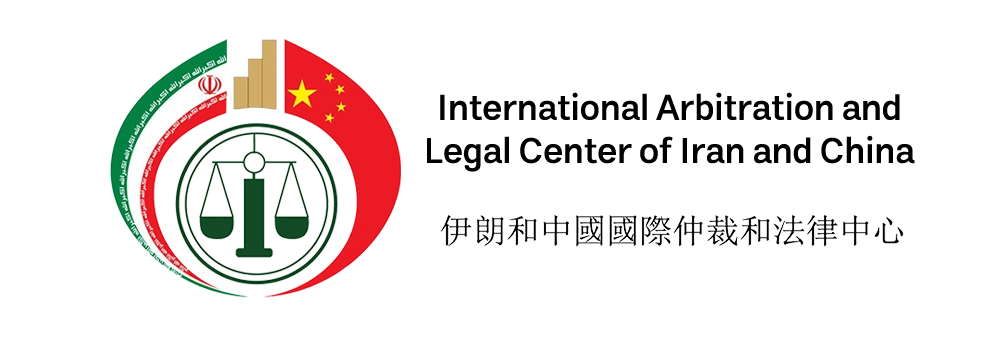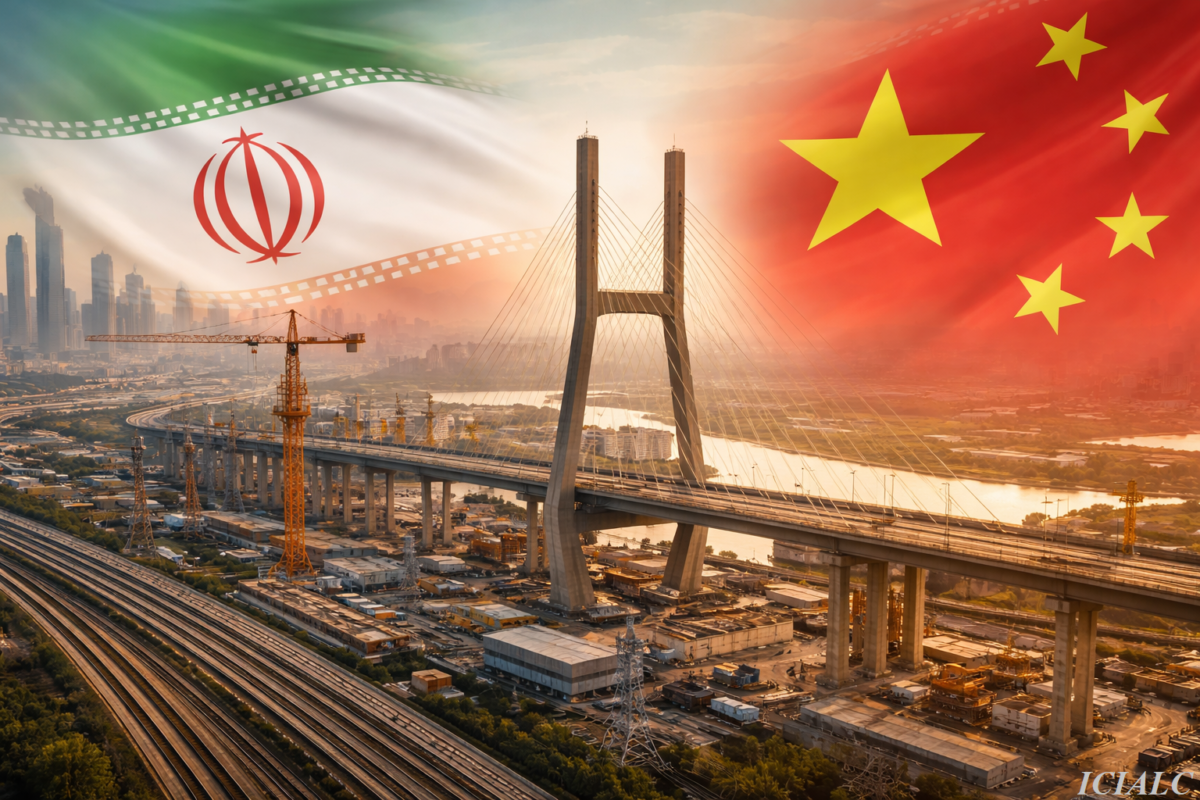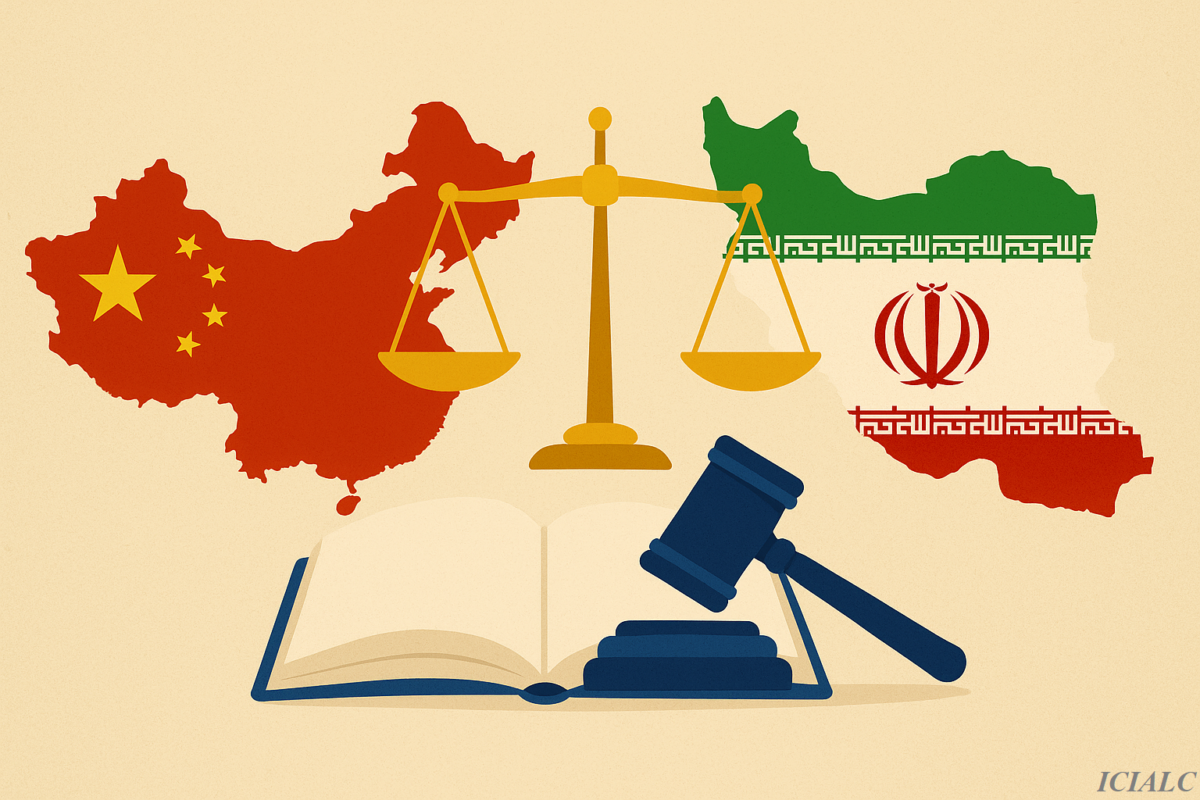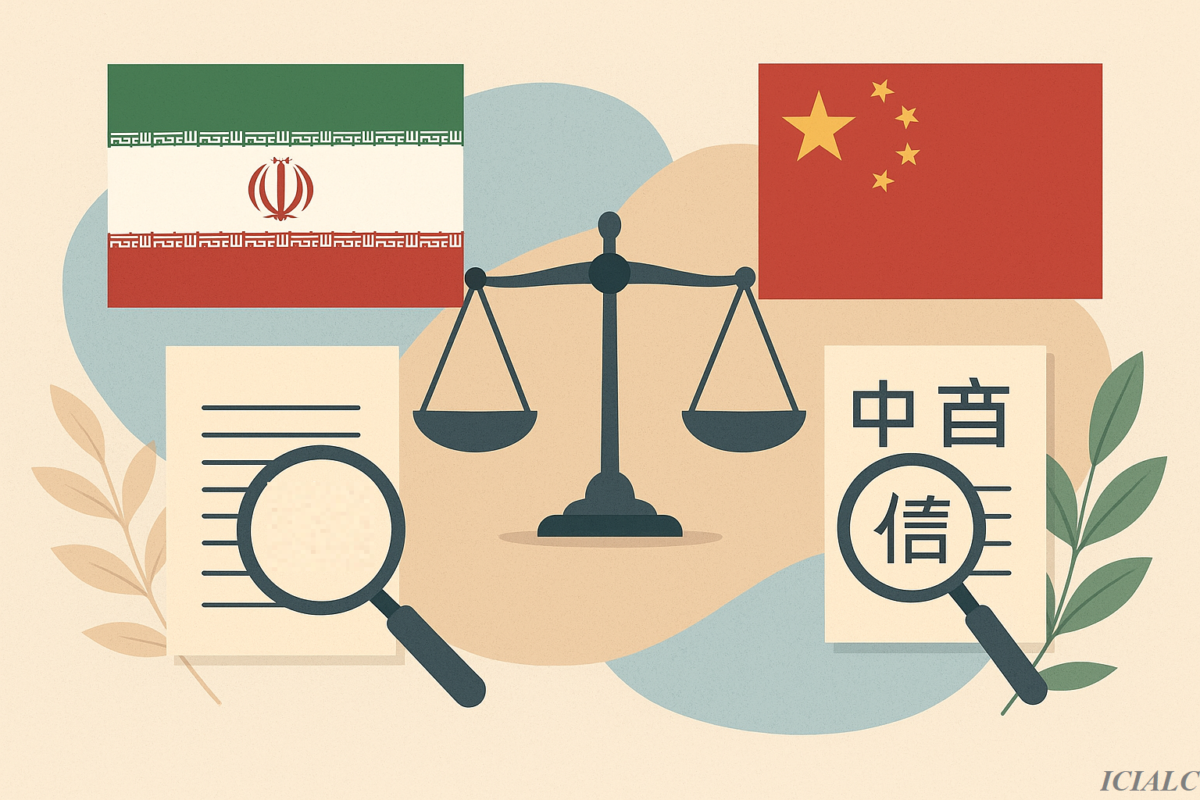In recent years, commercial relations between Iran and China have expanded significantly. From infrastructure and energy projects to transportation and investment contracts, cooperation between the two nations has reached wide-ranging dimensions. However, one of the principal challenges in implementing such agreements is the occurrence of circumstances beyond the parties’ control that render performance of contractual obligations impossible.
In contract law, these circumstances are referred to as Force Majeure. This article examines the concept of Force Majeure, its position in the legal systems of Iran and China, its effect on contractual performance, and contractual measures to manage related risks.
Concept of Force Majeure
Force Majeure is a French term meaning “superior force” or “an unforeseen and unavoidable event.” In the context of contracts, it refers to events outside the will of the parties that make the performance of obligations impossible.
Under Iranian law, although the term “Force Majeure” is not expressly mentioned, its concept is reflected in Article 227 of the Civil Code, which provides that if the obligor proves that nonperformance was due to an external cause, they are not liable for damages.
Under Chinese law, Article 180 of the new Civil Code (2021) expressly defines Force Majeure as “an objective event that is unforeseeable, unavoidable, and insurmountable,” with similar legal effects to the Iranian provisions.
Common Instances of Force Majeure in Iran–China Relations
Force Majeure in Iran–China trade is not limited to natural disasters or physical events but covers a broad spectrum of political, economic, health-related, and legal incidents that may render performance impossible or impracticable. Given the specific conditions of the two countries — including international sanctions against Iran, transportation complexities, and regional political volatility — identifying Force Majeure instances is of particular importance.
Sanctions and Banking or Trade Restrictions
International sanctions in financial, oil, and transportation sectors are among the most significant disruptions to Iran–China contracts. Examples include:
Loss of access to international payment systems such as SWIFT
Closure of Iranian corporate foreign currency accounts in China
Prohibitions on exporting or importing specific goods
Cancellation of transportation or international insurance permits
Some international arbitration cases have accepted sanctions as Force Majeure. In Iran, however, mere existence of sanctions is not enough; it must be proven that they directly prevented performance. In China, a more pragmatic approach has been taken, with some judicial and arbitral bodies recognizing sanctions as “external unavoidable events.”
Natural Disasters
Both Iran and China are located in disaster-prone regions. Earthquakes in Iran, typhoons and floods in China, among other natural phenomena, are clear examples. These typically cause:
Destruction of industrial facilities or warehouses
Disruption in transport and communications networks
Temporary or permanent cessation of production
If the disaster directly prevents performance and is unpredictable or unavoidable, the obligor may invoke the Force Majeure clause.
Epidemics and Health Crises
The 2020 COVID-19 outbreak was a clear example. Quarantines, port closures, and export/import restrictions halted numerous projects. During this period, China’s China Council for the Promotion of International Trade (CCPIT) issued official “Force Majeure Certificates” to help companies protect themselves against contractual liabilities. In Iran, courts also recognized COVID-19 as Force Majeure in cases where government restrictions directly prevented performance.
War, Regional Conflicts, and Political Instability
Given Iran’s geopolitical situation in the Middle East, military conflicts, arms embargoes, or security threats can disrupt trade or transport contracts. Examples include:
Closure of the Strait of Hormuz or shipping routes
Insurance restrictions on cargo transport
Sudden increases in tariffs or customs limitations caused by political tensions
Proving a direct link between the political event and inability to perform is essential.
Legal and Administrative Barriers
Sudden changes in export/import laws, revocation of licenses, or imposition of new administrative restrictions can also constitute Force Majeure. Examples include:
Prohibition of specific exports from China
Changes in Iranian customs regulations
Enactment of new legislation making performance impossible
If the parties have stipulated in the contract that legal changes constitute Force Majeure, the obligor will not be held liable.
Disruption in Supply Chains and International Transport
Iran–China trade heavily depends on sea, air, and land routes. Any disruption can significantly affect contractual performance. Examples include:
Port or border closures
Vessels halted due to sanctions or conflict
Container shortages and increased transport costs
In arbitration, such events are deemed Force Majeure when outside the parties’ control and unforeseeable.
Disruption of Financial and Electronic Communication Systems
With the rise of digital trade and online payments, any large-scale breakdown of communication systems, international internet, or payment networks can be Force Majeure — particularly if transactions rely on these systems. Such disruptions may result from cyber sanctions, cyberattacks, or government actions.
Legal Analysis of Force Majeure in Iran–China Contracts
Iran’s Approach
In Iran’s legal system, Force Majeure generally has three main effects:
Suspension of obligations – if the event is temporary, performance is postponed until it is resolved, without termination of the contract.
Exemption from liability – if the obligor proves nonperformance was due to an external, unforeseeable, unavoidable cause, they are absolved from paying damages.
Automatic termination – if performance becomes permanently impossible, the contract is considered dissolved.
Iranian courts interpret Force Majeure narrowly; mere difficulty or cost increase does not suffice. Clear causation must be shown. Courts generally recognize only events such as natural disasters, war, or governmental acts as apparent Force Majeure.
China’s Approach
Under Article 590 of the Civil Code of the PRC, if performance becomes impossible due to an unforeseeable, unavoidable, and insurmountable event, the obligor is exempt from liability. Chinese law emphasizes prompt notification to the other party along with necessary evidence.
During COVID-19, China’s CCPIT played a prominent role by issuing official Force Majeure Certificates, reflecting governmental support and flexible recognition of the concept.
Comparative Analysis
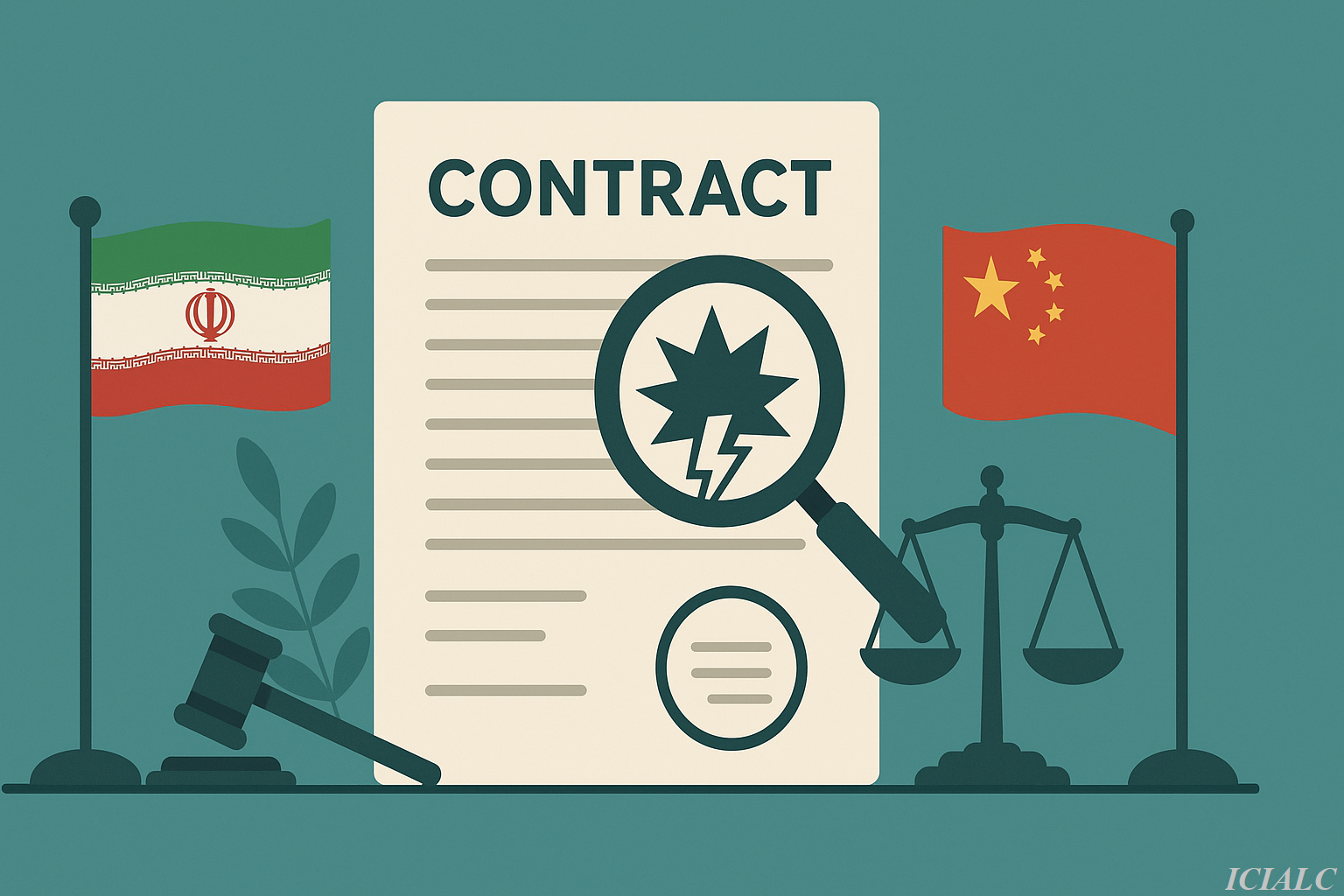
While both systems acknowledge the principle, differences exist:
Iran’s approach relies more on judicial interpretation and legal tradition, whereas China’s Civil Code offers an explicit, structured definition.
Iran rarely accepts sanctions or financial restrictions as Force Majeure; China follows a more pragmatic stance if such factors directly impede performance.
Iran’s courts focus on impossibility of performance, while China may also accept impracticability.
Given these differences, careful drafting of Force Majeure clauses and choice of governing law are critical in Iran–China contracts.
Legal Consequences of Force Majeure

Suspension or Termination of Contract
The primary effect is usually suspension of performance for temporary events. If the event permanently prevents fulfillment (e.g., destruction of subject matter, permanent legal prohibition), termination rights arise. Arbitrators assess duration and impact to distinguish suspension from termination.
Responsibilities of Parties
The invoking party must:
Notify the other party immediately.
Provide official evidence or certificates (e.g., from chambers of commerce).
Take reasonable measures to mitigate the impact of the event.
Failure to comply may render the Force Majeure claim invalid.
Role of Arbitration in Disputes

Many Iran–China contracts include arbitration clauses. Leading arbitration bodies such as the ICC and CIETAC play a key role in resolving Force Majeure disputes by assessing:
Nature and unforeseeability of the event
Conduct of the invoking party
Textual precision of the clause in the contract
Recommendations for Contract Drafting
To minimize disputes and ambiguity:
Draft precise, comprehensive Force Majeure clauses listing examples (sanctions, disasters, epidemics, legal changes).
Define notification deadlines and evidence requirements.
Consider using standardized clauses such as the ICC Force Majeure Clause 2020.
Choose a neutral governing law (e.g., Swiss or Singapore law) and independent arbitral forum.
Conclusion
Force Majeure is a cornerstone of international contract law, crucial in fair risk allocation. In Iran–China relations, understanding the differences in their legal systems and drafting precise contractual provisions can prevent costly disputes and promote stability in trade ties. Attention to the Force Majeure clause demonstrates legal diligence and fosters trust and long-term economic cooperation between the two countries.
